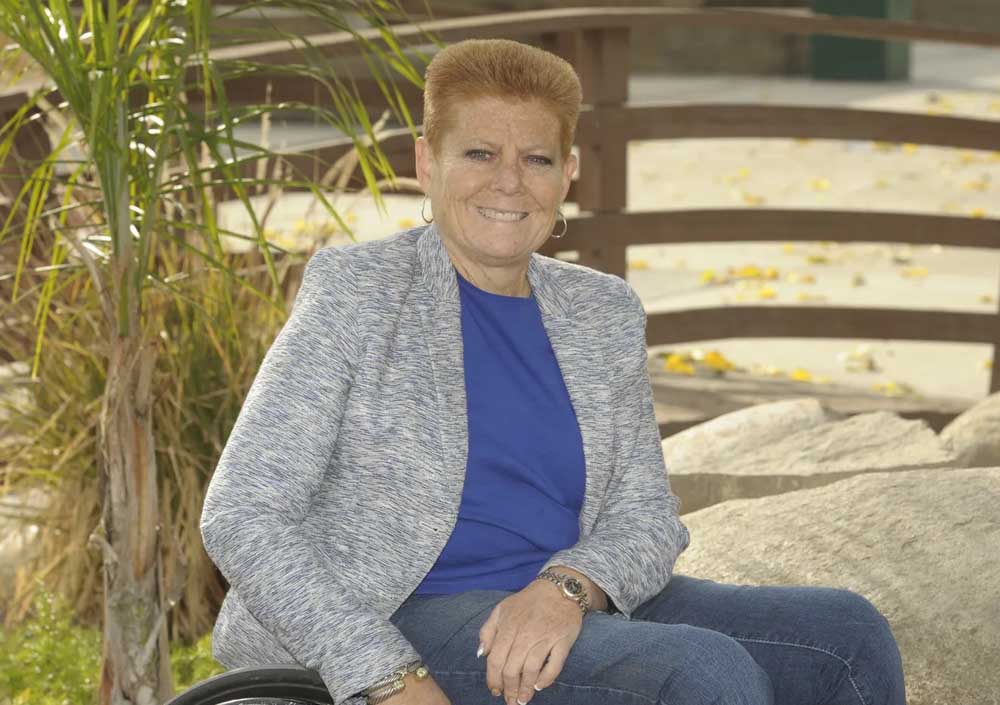State fires Sacramento County Fair chief following critical financial audits
Published 12:54 pm Tuesday, February 28, 2023

- Pamela Fyock in 2013. Jackson County commissioners withdrew Fyock's job offer this week after she was recently picked by the fair board as the county's next Expo director.
The Sacramento County Fair has been a family-friendly staple of the region’s entertainment scene for decades, serving up a time-honored buffet of carnival rides, livestock shows and live music for five days in the spring.
But in the past year its acting chief executive has been the target of state auditors who discovered numerous financial irregularities, including expense reimbursements and payments from nonprofit foundations that were deemed improper.
Last week the state decided it had seen enough. The California Department of Food and Agriculture, which oversees the fair, told The Sacramento Bee it has dismissed Pamela Fyock as acting CEO, just three months before the 2022 fair is scheduled to take place at Cal Expo.
The state agency conducted two audits in the past year of Fyock’s management during a period dating to 2013 — the first covering her management of the Tulare County Fair, where she also worked, and a recently completed investigation covering the Sacramento fair.
In both cases, auditors found that she had reimbursed herself for hundreds of thousands of dollars of expenses without “adequate separation of duties.” The Tulare audit found that she’d paid herself $20,621 for expenses that were duplicated or triplicated, prompting Tulare officials to demand she return the money.
Fyock ran the Sacramento fair off and on for about a decade, and for several years she was in charge of both fairs. She left the Tulare organization about two years ago.
She defended her work and said the concerns raised in the audits had been addressed already.
“Everything they accused me of,” Fyock told The Bee, “has been cured.”
Her firing shocked members of the Sacramento fair’s board of directors, who met in emergency session Thursday and voted to put Fyock on a 120-day “professional improvement plan.” But the Department of Food and Agriculture over-rode the board’s decision and dismissed Fyock instead.
Agency spokesman Steve Lyle said the department had urged the fair board to fire Fyock. When it didn’t, the department invoked its authority under state law to “intervene and assume fiscal and administrative responsibilities” for the Sacramento fair.
He said the 2022 fair will take place “as scheduled,” with officials of Cal Expo in charge. It will be the first time since before the COVID-19 pandemic started that the fair will operate, although a livestock show was held at Cal Expo last year with attendance limited to exhibitors and their families.
Both fairs are governed by separate boards of directors but are part of state government, not the individual counties, and answer to the Department of Food and Agriculture. The directors are appointed by the governor.
Established in Galt in 1937, the Sacramento fair occupies the same space as the California State Fair — the sprawling Cal Expo complex — but draws considerably smaller crowds and less attention.
Statistics compiled by the Department of Food and Agriculture show the Sacramento fair generated just $827,000 in operating revenue in 2018, the last year for which records were available. According to the county fair’s official history, the state eliminated funding for the county fair in 2011. The organization relies in part on funding from a nonprofit, the Sacramento County Ag Foundation.
The state’s auditors said they found “weaknesses and deficiencies” in the Sacramento fair’s internal operations. Among other things, the audit found that Fyock reimbursed herself for expenses totaling $242,000 over a five-year period.
Nearly half of those expenses remain a mystery. Auditors said they weren’t able to account for $107,230 worth of reimbursements, incurred in 2016 and 2017, because the supporting documents had been discarded in violation of the state’s “master destruction schedule” for dumping old records.
Mike Albiani, president of the fair board, said the audit mainly uncovered paperwork problems. “It’s a lot of ‘using the right forms,'” Albiani said. “Nothing criminal, in my opinion.” The board believed that the 120-day improvement plan was enough to fix the problems cited by the department’s auditors.
Albiani said Fyock left the fair in good shape and did an exceptional job of recruiting volunteers to supplement the fair’s small professional staff.
“The fair is not in financial straits,” the board president said. “We have $1 million in reserve.”
Fyock noted that annual attendance at the Sacramento fair jumped from 61,000 to 105,000 during her tenure.
“It was almost broke when I got there,” she said.
Audit questions housing reimbursements
In both audits, Fyock is referred to as “Employee A,” but she confirmed her identity in a brief interview. The Bee obtained copies of both reports through California Public Records Act requests.
The Sacramento audit also questioned some of her housing expenses. She reimbursed herself $5,900 to rent a home for herself and other employees for 36 nights just prior to the 2020 fair. Although the fair was canceled because of the pandemic, Fyock and others stayed in the rental home, instead of seeking a refund from the owner, to prepare for a virtual livestock show that was held in lieu of the fair.
“She did not provide any justification to reimburse herself for this lodging cost as she was not on travel status,” the audit said.
The Tulare audit, completed about a year ago, also turned up irregularities. Over a five-year period, Fyock was improperly reimbursed as many as three times for a host of expenses totaling $20,621.
That audit also showed that Fyock “improperly received compensation from two nonprofits” without receiving prior approval from the state.
The nonprofits weren’t identified in the audit, but IRS records show that Fyock was paid $80,000 in 2017 by the Sacramento County Ag Foundation, which supports the Sacramento fair. In 2019, she was paid $30,000 by the Tulare County Fair Foundation — at the same time the state’s audit shows she was paid $110,000 to manage the fair.
In addition, Fyock in 2015 was paid $10,000 by a company that signed a contract to rent the Tulare fairgrounds for an event and hired her to handle food services at the event.
“Employee A used her position as an employee of the (Tulare fair) to secure her service contract with the company,” the audit said.
In their reply to the audit, directors of the Tulare fair said they planned to bill Fyock for the $20,000 in improper expenses and “will consider all available legal remedies” if she refused.
Gary Castro, the president of the Tulare fair board, said Monday that Fyock reimbursed the state for those expenses but the state hasn’t forwarded the money to the Tulare organization.
The state is apparently keeping the money “for legal reasons,” Castro said. “I don’t know what it is.”
Albiani said the Sacramento and Tulare fairs worked out a “sharing agreement” several years ago under which Fyock ran both fairs. He said Fyock left the Tulare fair two years ago because of “personality conflicts with the board — these things happen.” The Sacramento fair board voted to hire her full time but she was given the title of “acting CEO,” he said, because the state never ratified the decision.
The Sacramento board met in emergency session to consider Fyock’s future Thursday, but the meeting was effectively closed to the public because the Zoom link posted on the meeting agenda was invalid. As a result, there’s no recording available, according to Lyle of the Department of Food and Agriculture.






